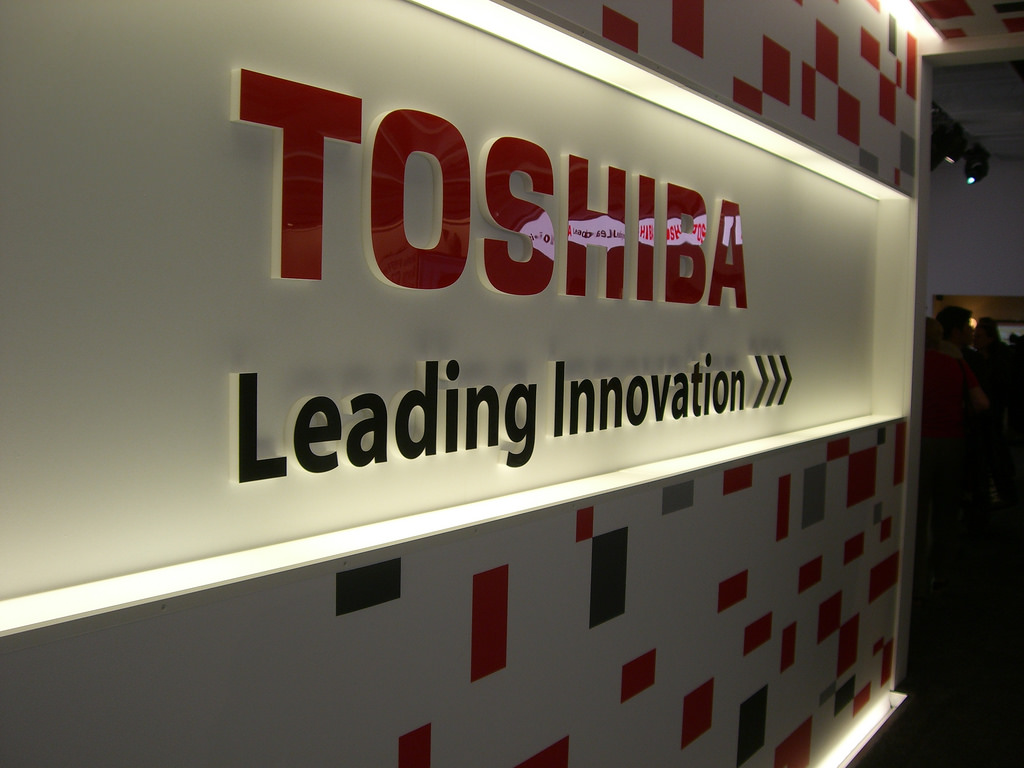 INFRA
INFRA
 INFRA
INFRA
 INFRA
INFRA
Toshiba Corp.’s financial problems are forcing the company to spin off its highly profitable flash memory business unit into a separate entity.
The Japanese firm is credited with inventing NAND flash, which does not need power to retain data, back in the 1980s. Toshiba said it plans to complete the process, which includes its solid-state drive business but excludes its image sensor business unit, by March 31. It’s not yet clear which assets and liabilities will be split off, though the company plans to sell less than 20 percent of the business, Reuters reported.
Toshiba’s NAND flash memory business accounts for most of the company’s operating profits. It’s the second-largest producer in the world behind Samsung Electronics Co. Ltd.
Toshiba needs to raise money to offset losses related to an acquisition within its U.S. nuclear business that could be as a high as “several billion U.S. dollars,” the company said. “Splitting off the Memory business into a single business entity will afford it greater flexibility in rapid decision-making, and enhance financing options, which will lead to further growth of the business and maximize the corporate value of Toshiba Group,” the company said in a note to shareholders.
That view was reinforced by analyst firm DRAMeXchange, a division of TrendForce Corp., which said in a statement it believes that spinning off the business will create “more operational flexibility and stronger fundraising ability,” ultimately leading to an “expansion in NAND Flash production capacity and increased efficiency in storage product development.”
DRAMeXchange added that the move is likely a way for Toshiba to safeguard what is its prize business jewel. Toshiba is under intense pressure because of a number of financial scandals that have hit the company over the last few years, and the belief is that its flash business will be better insulated from these if it becomes an independent company.
“Toshiba wants to put its memory business in a more stable financial position,” said Sean Yang, research director of DRAMeXchange. “Facing mounting operational and competitive pressure, the spun-off entity will be more effective in raising cash to stay afloat or expand.”
Toshiba plans to hold a shareholder meeting in order to gain approval for the plan. Reuters added that if the sale isn’t completed by the end of its financial year in March, shareholder equity could be wiped out.
Just over a year ago, Toshiba announced a major restructuring initiative prompted by an admission in September 2015 that it had overstated its profits by almost $2 billion over a seven-year period. As part of that effort, Toshiba quickly sold off its personal computer business and laid off thousands of employees.
Support our mission to keep content open and free by engaging with theCUBE community. Join theCUBE’s Alumni Trust Network, where technology leaders connect, share intelligence and create opportunities.
Founded by tech visionaries John Furrier and Dave Vellante, SiliconANGLE Media has built a dynamic ecosystem of industry-leading digital media brands that reach 15+ million elite tech professionals. Our new proprietary theCUBE AI Video Cloud is breaking ground in audience interaction, leveraging theCUBEai.com neural network to help technology companies make data-driven decisions and stay at the forefront of industry conversations.